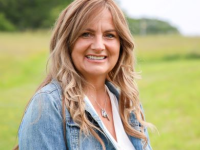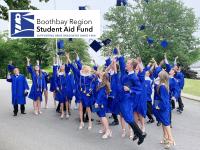Bill affecting water district advances in Maine state legislature
A legislative bill, LD 1809, that limits the use of remote technology at public meetings is close to being enacted in the Maine State Legislature.
Earlier this week LD 1809 passed both the Maine House of Representatives and the Senate. Having narrowly passed the senate by three votes, the bill will now be voted on for enactment before it's sent off to the governor's office.
LD 1809 prohibits quasi-municipal bodies, such as water and sewer services, from using telephonic, video or electronic communication during public meetings, unless specific conditions are met.
The bill was met with opposition by the Boothbay Region Water District. The district currently has a trustee, Ken Marston, participating in board meetings from a remote computer at his winter home in Florida.
In past weeks, BRWD and other quasi-municipal boards across the state testified against the bill. But the bill got approved by the legislature's judiciary committee on March 27.
Garrett Corbin, a legislative advocate for Maine Municipal Association, is currently trying to lobby the House and the Senate to not move forward with LD 1809.
“It's definitely at this point an uphill battle, but not an insurmountable one,” Corbin said.
According to Corbin, LD 1809 implies that remote participation in public meetings is illegal, yet still permissible for sewer and water districts, but only under certain circumstances.
“There's this impression that remote participation in public meetings is illegal, and there are a lot of legal minds out there that disagree,” Corbin said. “By stating that these water and sewer districts can (use remote technology) but only under these limited circumstances, it implies that they're the only entities that can do it.”
State Rep. Charles Priest (D-Brunswick) is a co-sponsor of LD 1809. According to Corbin, Priest said in testimony that LD 1809 was sort of an experiment to test out and see how it works with quasi-public bodies.
Priest and co-sponsor Sen. Linda Valentino (D-York) did not immediately return phone calls or emails.
While the motive of LD 1809 is an apparent effort to better define how public proceedings take place under the Freedom of Access laws, opponents of the bill believe it puts unnecessary restrictions on public meetings. According to BRWD’s Jon Ziegra, the bill also unfairly discriminates against older members to effectively participate in local affairs.
On April 4, BRWD's board of trustees voted unanimously to amend the local bylaws to allow remote communication to continue.
The amendment states that “board members may attend meetings either in person, via a board of trustee approved remote audio/visual means and have the same rights and responsibilities of those trustee present to conduct district business.” The amendment further states “any conflict or inconsistency between the bylaws and the applicable laws should be resolved in favor of the law, with the exception of the use of board members utilizing remote meeting technology.”
Although it's possible that BRWD's current remote set up with Marston might be permissible under the bill's conditions, Ziegra and the board of trustees don't believe state government should be meddling with the local bylaws, should LD 1809 become a law.
If LD 1809 gets the governor's signature, it would become a law 90 days after the current legislative session adjourns, which according to the statutory adjournment day could be as early as April 16.
Event Date
Address
184 Adams Pond Road
Boothbay , ME 04537
United States




















